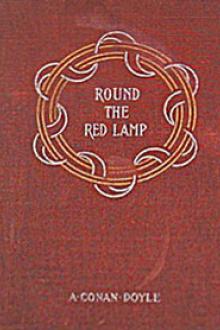Genre Fiction. Page - 219

id touching them. Don Jose, having begged me to excuse the liberty he took in placing himself so near me, lay down across the door, but not until he had primed his blunderbuss afresh and carefully laid it under the wallet, which served him as a pillow.
I had thought I was so tired that I should be able to sleep even in such a lodging. But within an hour a most unpleasant itching sensation roused me from my first nap. As soon as I realized its nature, I rose to my feet, feeling convinced I should do far better to spend the rest of the night in the open air than beneath that inhospitable roof. Walking tiptoe I reached the door, stepped over Don Jose, who was sleeping the sleep of the just, and managed so well that I got outside the building without waking him. Just beside the door there was a wide wooden bench. I lay down upon it, and settled myself, as best I could, for the remainder of the night. I was just closing my eyes for a second time when I fancied I saw the shadow of a man and then the shadow o

his statements, is hopelessly vain.
It is all undeniable, no doubt; from every side we make out that the criticism of a book--not the people in the book, not the character of the author, but the book--is impossible. We cannot remember the book, and even if we could, we should still be unable to describe it in literal and unequivocal terms. It cannot be done; and the only thing to be said is that perhaps it can be approached, perhaps the book can be seen, a little more closely in one way than in another. It is a modest claim, and my own attempt to assert it will be still more modest. A few familiar novels, possibly a dozen, by still fewer writers--it will be enough if I can view this small handful with some particularity. And I shall consider them, too, with no idea of criticizing all their aspects, or even more than one. How they are made is the only question I shall ask; and though indeed that is a question which incidentally raises a good many others--questions of the intention of the novelist, his c

ion, though all orders may make some progress, yet it is most perceptible in the lower. It is a process of 'levelling up;' the rear rank 'dressing up,' as it were, close to the front rank. When Hamlet mentions, as something which he had 'for three years taken note of,' that 'the toe of the peasant comes so near the heel of the courtier,' it was probably intended by Shakspeare as a satire on his own times; but it expressed a principle which is working at all times in which society makes any progress. I believe that a century ago the improvement in most country parishes began with the clergy; and that in those days a rector who chanced to be a gentleman and a scholar found himself superior to his chief parishioners in information and manners, and became a sort of centre of refinement and politeness.
Mr. Austen was a remarkably good-looking man, both in his youth and his old age. During his year of office at Oxford he had been called the 'handsome Proctor;' and at Bath, when more than seventy yea

is very hard of hearing, so that it makes little difference whether he uses it or not.
He reads, as a duty, his weekly medical paper, so that he has a general idea as to the advance of modern science. He always persists in looking upon it as a huge and rather ludicrous experiment. The germ theory of disease set him chuckling for a long time, and his favourite joke in the sick room was to say, "Shut the door or the germs will be getting in." As to the Darwinian theory, it struck him as being the crowning joke of the century. "The children in the nursery and the ancestors in the stable," he would cry, and laugh the tears out of his eyes.
He is so very much behind the day that occasionally, as things move round in their usual circle, he finds himself, to his bewilderment, in the front of the fashion. Dietetic treatment, for example, had been much in vogue in his youth, and he has more practical knowledge of it than any one whom I have met. Massage, too, was familiar to him when it was new to our ge

ut into deep water. Above it were store-houses, machine rooms, kitchens, all the paraphernalia of modern existence. He stepped out of a kiosk onto an upper deck, thirty feet above the surface. Nobody else was there and he walked over to the railing and leaned on it, looking across the water and savoring loneliness.
Below him the tiers dropped away to the main deck, flowing lines and curves, broad sheets of clear plastic, animated signs, the grass and flowerbeds of a small park, people walking swiftly or idly. The huge gyro-stabilized bulk did not move noticeably to the long Pacific swell. Pelican Station was the colony's "downtown," its shops and theaters and restaurants, service and entertainment.
Around it the water was indigo blue in the evening light, streaked with arabesques of foam, and he could hear waves rumble against the sheer walls. Overhead the sky was tall with a few clouds in the west turning aureate. The hovering gulls seemed cast in gold. A haziness in the darkened east betokened

nt tohis cottage to deposit his gun, saddled his forest pony, and set offfor Arnwood. In less than two hours the old man was at the door of themansion; it was then about three o'clock in the afternoon, and beingin the month of November, there was not so much as two hours ofdaylight remaining. "I shall have a difficult job with the stiff oldlady," thought Jacob, as be rung the bell; "I don't believe that shewould rise out of her high chair for old Noll and his whole army athis back. But we shall see."
CHAPTER II.
Before Jacob is admitted to the presence of Miss Judith Villiers, wemust give some account of the establishment at Arnwood. With theexception of one male servant, who officiated in the house and stableas his services might be required, every man of the household ofColonel Beverley had followed the fortunes of their master, and asnone had returned, they, in all probability had shared his fate. Threefemale servants, with the man above mentioned, co

the spacious chamber, stood a group that arrested the eye-a Spanish priest, in vestments of semi-state; an olive-skinned man whom Maseden recognized as a legal practitioner of fair repute in a community where chicanery flourished, and a slenderly-built woman of middle height, though taller than either of her companions, whose stylish coat and skirt of thin, gray cloth, and smart shoes tied with little bows of black ribbon, were strangely incongruous with the black lace mantilla which draped her head and shoulders, and held in position a double veil tied firmly beneath her chin.
Maseden was so astonished at discovering the identity of the lawyer that he momentarily lost interest in the mysterious woman who would soon be his wife.
"Señor Porilla!" he cried. "I am glad you are here. Do you understand--"
"It is forbidden!" hissed Steinbaum. "One more word, and back you go to your cell!"
"Oh, is that part of the compact?" said Maseden cheerfully. "Well, well! We must not make ma

ng passions and affections which she often hid from the world under a placid appearance. Like Mathilda's, Mary's mother had died a few days after giving her birth. Like Mathilda she spent part of her girlhood in Scotland. Like Mathilda she met and loved a poet of "exceeding beauty," and--also like Mathilda--in that sad year she had treated him ill, having become "captious and unreasonable" in her sorrow. Mathilda's loneliness, grief, and remorse can be paralleled in Mary's later journal and in "The Choice." This story was the outlet for her emotions in 1819.
Woodville, the poet, is virtually perfect, "glorious from his youth," like "an angel with winged feet"--all beauty, all goodness, all gentleness. He is also successful as a poet, his poem written at the age of twenty-three having been universally acclaimed. Making allowance for Mary's exaggeration and wishful thinking, we easily recognize Shelley: Woodville has his poetic ideals, the charm of his conversation, his high moral qualities, his sense of

retching out to himmy youthful foot:
"Isn't it awfully hard to do, Mr. Gessler?"
And his answer, given with a sudden smile from out of the sardonicredness of his beard: "Id is an Ardt!"
Himself, he was a little as if made from leather, with his yellowcrinkly face, and crinkly reddish hair and beard; and neat foldsslanting down his cheeks to the corners of his mouth, and hisguttural and one-toned voice; for leather is a sardonic substance,and stiff and slow of purpose. And that was the character of hisface, save that his eyes, which were grey-blue, had in them thesimple gravity of one secretly possessed by the Ideal. His elderbrother was so very like him--though watery, paler in every way, witha great industry--that sometimes in early days I was not quite sureof him until the interview was over. Then I knew that it was he, ifthe words, "I will ask my brudder," had not been spoken; and that, ifthey had, it was his elder brother.
When one grew old and wild and ran up bills, one someho
